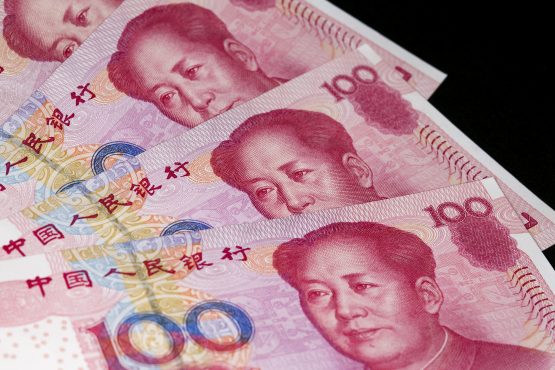What Opportunities for Yuan Traders are there in the Forex Market? It’s a fact that China’s financial markets always present special challenges for traders and investors who are accustomed to dealing with open, democratic economies.
That’s because communist run nations like Cuba, North Korea, Laos, and Vietnam, are not always financially transparent. Plus, dictators run the show in these places, which means that most economic decisions aren’t the result of economics but of political goals.

As 2021 comes to a close, many forex enthusiasts are left scratching their heads and wondering what in the heck is going on with the Chinese yuan, the communist nation’s official currency.
For the last week of October, China’s political bosses have not intervened as the yuan continues to rise against other major world currencies. In a nation where strong government intervention is the rule rather than the exception, allowing the yuan’s value to steadily rise is unusual behavior.
Why might the totalitarian economy’s leaders be taking a hands-off approach, at least for now? Here are several pertinent facts that might help shed light on the situation.
What’s Going on With the Yuan?
After years of weakness against its main competitor, the U.S. dollar, China’s currency showed unusual strength in the month of October, moving from 6.38 to 6.40, when expressed as yuan/dollar. That might not seem, on its face, like a major change. But, keep in mind that in 2021 alone, China’s currency fell from a high of 6.69 to 6.36, a major decline in terms of historic moves between the two benchmark forex currencies.
The question is not how the unusual, recent rise in yuan’s value occurred. Some agree that the communist led government is engaging in unethical manipulation.
It’s part of the way they do business and surprises no one. The real mysteries include what the new situation will do to world foreign exchange markets, what opportunities a stronger yuan presents for traders, how to avoid risk when buying and selling China’s currency, and what trends might be in place for both the long and short-term timeframes. Here’s more about each point that could help clarify strategies for forex enthusiasts.
How Forex Markets are Reacting
When it comes to the state of the Chinese economy, the strength of the nation’s currency is of interest to virtually every forex trader, no matter where they live or which other currencies they buy and sell. For example, markets for forex trading in South Africa, the U.S., Europe, and Asia are all directly impacted by decisions made in Chinese government meetings.
That’s because, in many ways, the yuan’s importance is a global phenomenon, similar to the U.S. dollar and the euro. How are markets reacting to the recent developments in Beijing? Most of the world’s major economies are simply waiting to see whether China’s leaders will continue their hands-off policy for the rest of 2021 and possibly into early 2022.
Opportunities for Traders
If trends continue and values of yuan/dollar rates rise even more, Beijing’s economic planners could look forward to a dose of recovery that is much needed.
Logistics bottlenecks, a five-year period of monetary problems, massive COVID-19 infection rates, electric power grid failures, and more have led to widespread woes in the world’s largest communist country. If you’re actively involved in Forex, it’s worth taking time to study the daily announcements from Beijing about how the nation’s leaders intend to shore up their faltering economy.
Chances are pretty good that they want to let their currency continue to strengthen before putting on the brakes and setting a hard cap on its growth.
How to Avoid Risk
With all opportunity comes risk, and the current situation with Beijing’s political decisions is no exception. Unlike free nations, where currencies rise and fall in value based on natural economic factors, dictatorships are a completely different animal.
To avoid risk if you’re dealing with yuan backed pairs, avoid long-term commitments, because at any given moment, Chinese manipulators could decide to stop shoring up the currency, let if fall in value, or simply freeze it at whatever level they prefer.
Long and Short Trends
Consider studying the dollar-yuan exchange rate history in order to gain a solid understanding of what the future might hold. In foreign exchange markets, history doesn’t always repeat itself, but it does offer insights into how short-term and long-term future trends might unfold.
For example, the yuan’s movement has been choppy for the past six months, saw significant declines over the past 12 months, has fallen precipitously during the past two years and three years, and has moved from 6.63 yuan/dollar to 6.4 since four years ago, in late 2017.
Watch this space for updates in the Hacks category on Running Wolf’s Rant.
Like what you just read? Subscribe To Our Newsletter to stay in the loop.
Feel free to explore our website or check out our Featured Articles.
Looking for a gift for that special person in your life? Check out Netflorist.co.za, South Africa's top online florist and gift service. They offer flowers, gifts, and hampers for all occasions AND reliable nationwide delivery.



